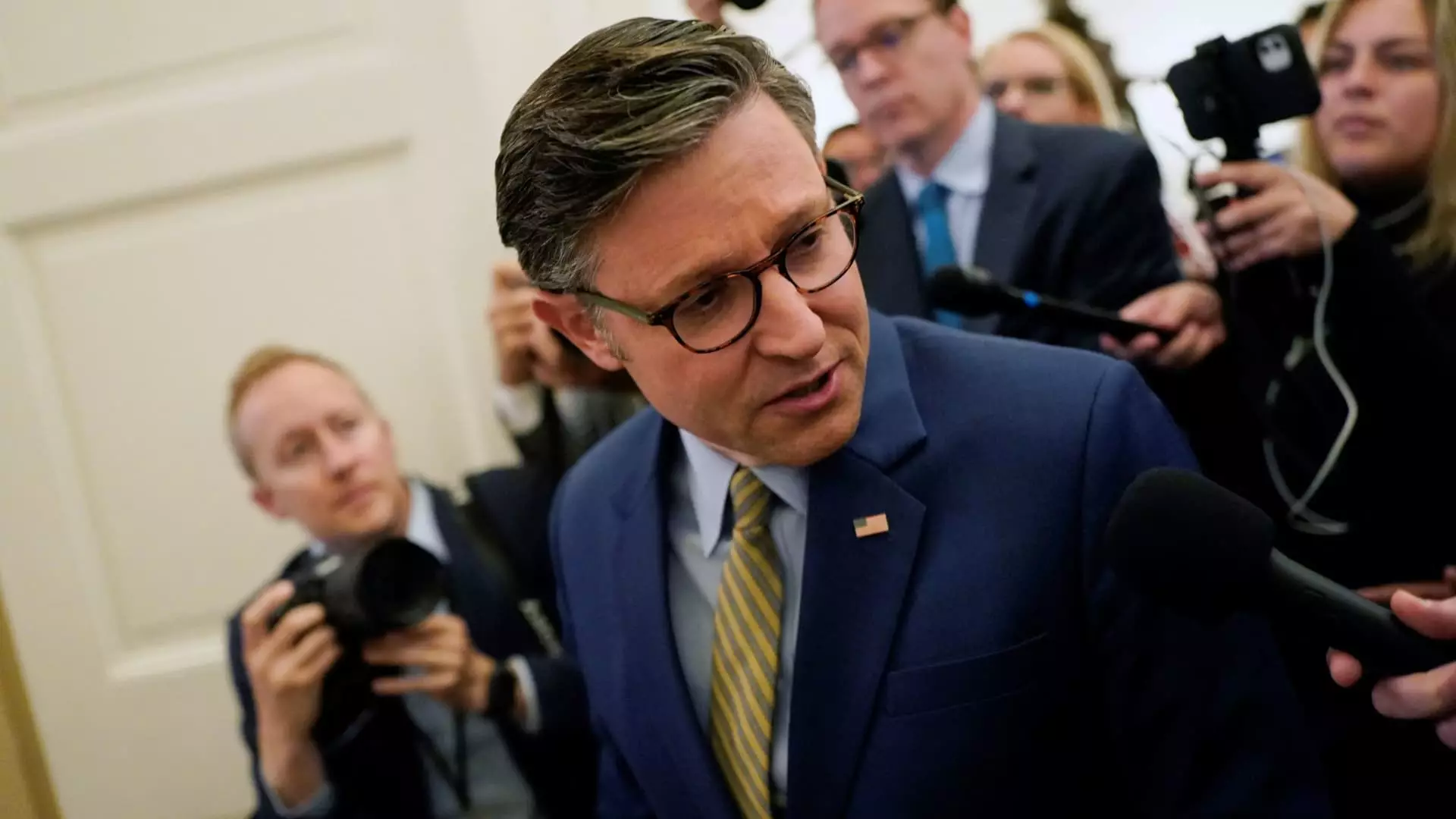In a bold and somewhat alarming declaration, House Speaker Mike Johnson recently lauded the passage of what he describes as the “big, beautiful bill,” heralding it as an unprecedented cut in federal spending and a catalyst for economic rejuvenation. However, this rosy optimism starkly contrasts with independent analyses that paint a far different picture. The Congressional Budget Office’s findings forewarn of a potential $3.8 trillion increase in deficit over the coming decade due to the enacted tax provisions. It raises an urgent question: at what point does idealism masquerade as fiscal irresponsibility?
Johnson’s dismissal of these projections as “dramatically overstated” highlights a troubling trend in contemporary politics—the preference for narrative over numbers. While the Speaker argues that this legislation will pave the way for enhanced wages and an entrepreneurial renaissance, it increasingly seems like a leap of faith rooted in overly simplistic economic assumptions. Did economic growth sometimes materialize from tax cuts? Yes, but it does not consistently follow, and basing policy on hope rather than verified economic principles is a disservice to citizens who rely on sound governance.
Political Leverage and Party Lines
The passage of the bill through the House was a narrow victory, buoyed by vocal support from former President Donald Trump, who lobbied fervently for its approval. Congressional Republican leaders, including fiscally conservative senators, have expressed hesitancy about the sweeping implications of the legislation, suggesting a divide within the party. Their concerns about soaring deficits seem to clash with Johnson’s fervor, indicating a degree of internal conflict that could have long-term repercussions for the Republican agenda.
Of particular concern is the precarious balance that Speaker Johnson has to maintain. With a slender majority in the House, he risks alienating moderates and fiscal conservatives alike by pushing through bills that might lead to unsustainable fiscal policies. The call for minimal modifications from Senate Republicans may well be a plea borne out of fear rather than principle. The question remains: can a bill enshrined in such political peril genuinely be regarded as beneficial for the country?
Misguided Beliefs About Economic Growth
Perhaps the most significant flaw in Johnson’s argument lies in the assumption that tax cuts will invariably lead to robust economic growth. This notion simplifies a complex relationship, neglecting factors such as wealth distribution, consumer spending, and public investment that drive a healthy economy. Motivating “job creators” and “risk-takers” is not merely the product of reduced taxes; it’s the result of a robust, well-educated workforce, infrastructure investment, and confident consumer behavior.
Sadly, in the contemporary political climate, discussions are often reduced to a binary stance favoring tax cuts or government intervention, without addressing the nuanced realities that inform economic health. Engaging with these multifaceted economic levers is vital for establishing policies that support sustainable growth and equitable prosperity.
While optimism can fuel initiatives and progress, it must be rooted in reality and sound economic principles. Knee-jerk accolades for passage without genuine fiscal prudence could lead us down a perilous path, with future generations bearing the burden of today’s miscalculations.


Leave a Reply